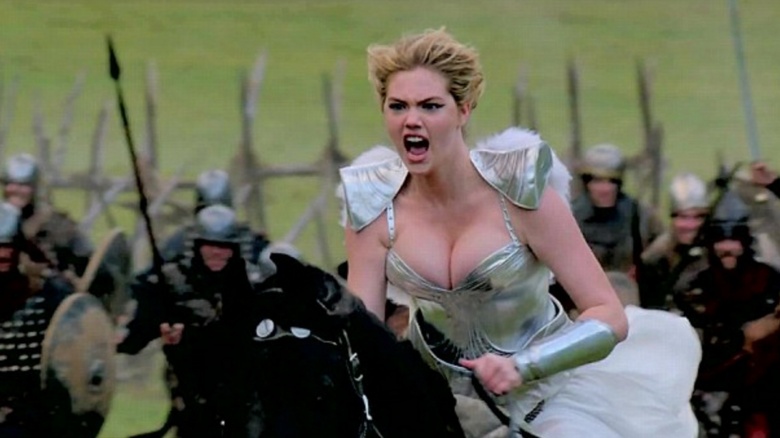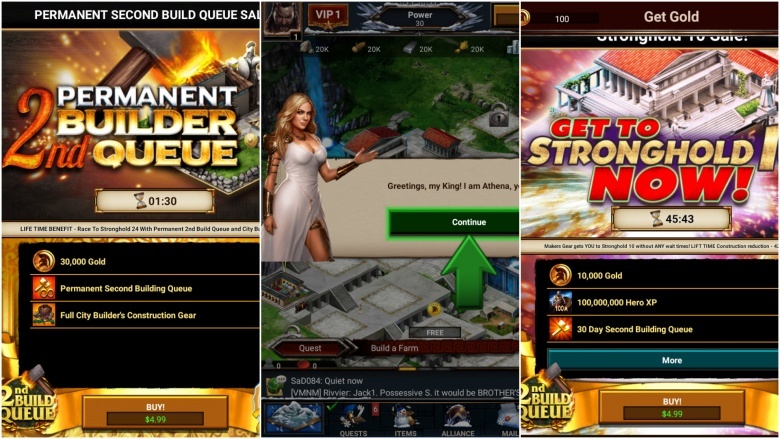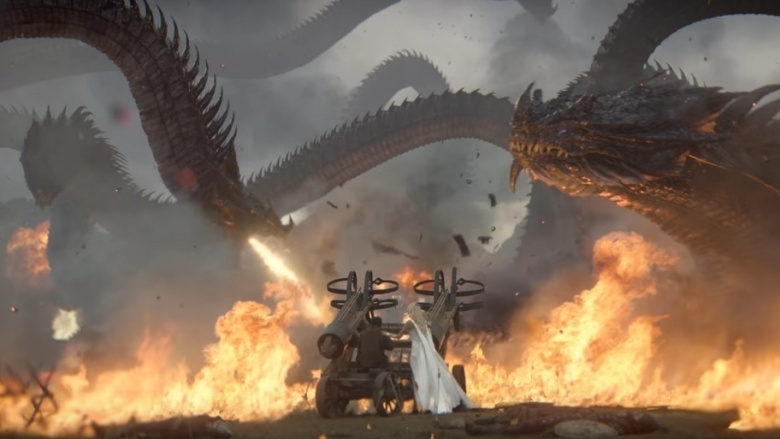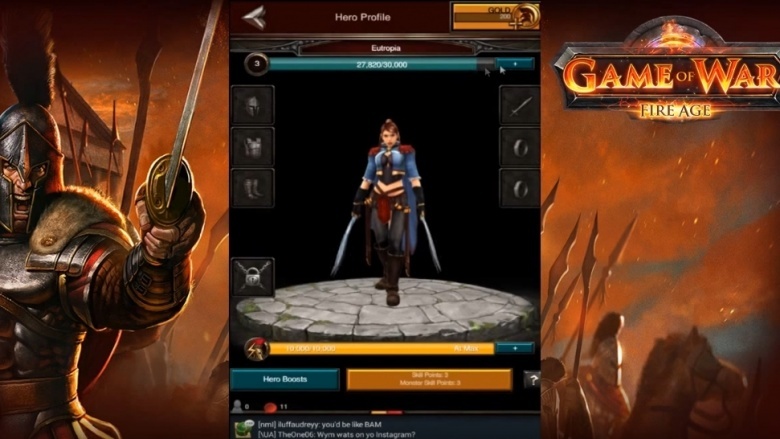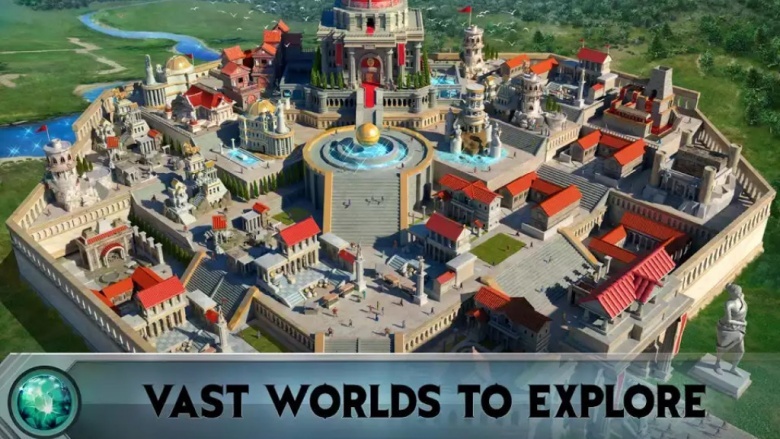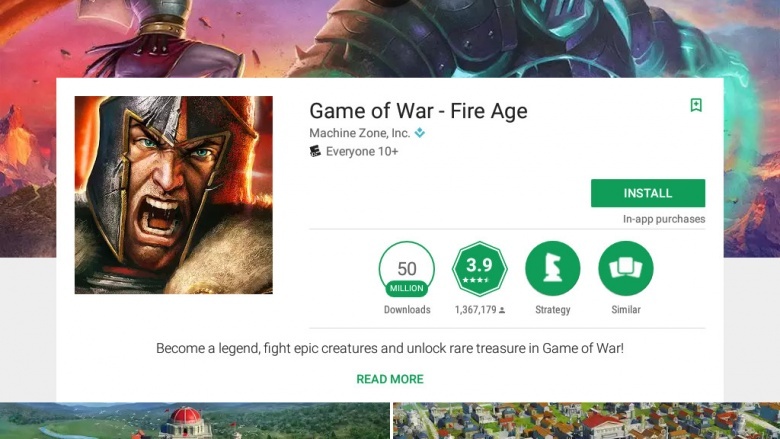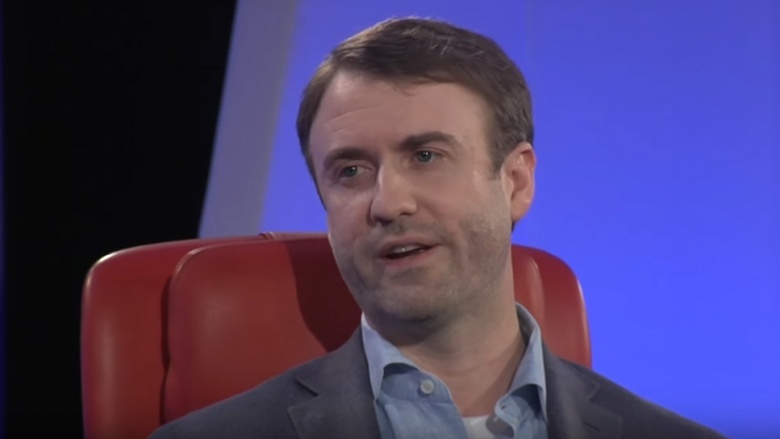What They Won't Tell You About Game Of War
Game of War took the world by storm in 2015 with a high-profile Super Bowl commercial featuring scantily clad supermodel Kate Upton—an advertising gimmick for which developer Machine Zone reportedly paid $40 million. Since then, the online strategy game has become one of the top-selling mobile apps in history. But what's really happening behind the scenes? Here's what you may not know about Game of War: Fire Age.
Celebrity faces
After spending millions on Kate Upton's commercial during Super Bowl XLIX, Machine Zone went for a change of pace—and a change of face. The next superstar to appear in a Game of War commercial was none other than pop star Mariah Carey, who spent a total of two seconds on screen but reportedly earned a seven-figure paycheck for her troubles. Of course, part of that cash probably to license rights for Carey's song "Hero," which is played relentlessly during the ad. Was it as effective as the Kate Upton spot? It's hard to say, but 2015 was definitely a grand-slam year for Game of War, because...
It grossed over $1 million per day in 2015
How does a free game bring in $1 million a day? It's not easy, but it helps if you build your entire business model around getting players to buy stuff inside the game. And if there's one thing Game of War is good at, it's making sure its players have a reason to drop loads of cash on their virtual kingdoms. Game of War is what's known as a "freemium" game—it's free to download and play, but if you really want to have a chance in the game, you need to pay for the premium content. According to Bloomberg, Game of War's downloads—and paying players—soared after Machine Zone's widespread advertising efforts in early 2015.
With a server capable of handling 3 million simultaneous players, gamers from all around the globe, it's certainly easy enough for plenty of people to spend some money in the game, especially when Game of War makes it a point to push premium (stuff you have to buy) deals at just about every loading screen. Obviously, not every player—or even most players—will spend money to get in-game advantages, but there are enough who are willing to do just that to make Game of War one of the top-grossing mobile apps of our time. It also helps that...
Players spend an average of $400 more than on other games
According to VentureBeat, the average mobile gamer spends $86.50 on mobile games each year. Remember, that's the average: if one person in 100 spends money, the average goes up...even if only only a handful of people really put forth the pocket change to make that average happen. But in Game of War, the average amount spent per player is a ridiculous $550. What are these people buying? More than anything, they're buying gold. According to the game's iTunes store page, Game of War's top in-app purchase is a bundle with 28,000 gold...which costs a cool $99.99.
And again, not every person who downloads Game of War: Fire Age is dropping $550 every year to mine resources and train fake troops. It's all thanks to the whales. If you've ever worked for a shady telemarketing firm in Costa Rica, you're probably familiar with the term. On the off chance you haven't, here's the gist: Many companies, like casinos and mobile game developers, make a sizable profit not because every customer empties their bank account into the game, but because a small percentage do. For every 100 players, there might be one who pays for premium content. But they're willing to pay so much that it makes up for the other 99% who don't drop a single nickel. Those folks, the big spenders, are the whales. And Game of War has a whole pod of them.
One guy stole $1 million to pay for Game of War
Actually, he stole $4.8 million. And he only spent $1 million of that on Game of War. That makes it better, right?...right? Perhaps the biggest whale of them all, Californian Kevin Co spent seven years – from 2008 to 2015 – embezzling funds as an accountant for a company specializing in construction equipment. He used most of the money for man-toys like cars and sports tickets, your standard embezzlement candy, but somewhere along the way he decided that a free mobile game was worth $1 million of his hard-stolen money. There's no record of exactly what he bought in the game, but really, does it matter?
Critics hate it
For all the money Game of War is raking in for Machine Zone, it may be one of the most hated games of the past few years. Critics have pointed out its practically nonexistent gameplay, the massive wait times to do anything useful, and the circular nature of the entire system—you basically build things so you can build more things in the future. But more than anything, most critic reviews call out Game of War as nothing more than a shameless cash grab. Basically, if you aren't one of those aforementioned whales, you can spend months building your kingdom just to be slaughtered by a newcomer with deep pockets. As a reviewer for Macworld said, Game of War "continues on for hours and hours as you're prompted to build something new, take on more quests, and repeat ad nauseam."
Forbes gets even more to the point: "Don't support Game of War, no matter how many supermodels tell you to." Harsh.
But players love it
For all the hate, Game of War must be doing something right. On top of raking in more cash than some countries' entire GDPs, Game of War also garnered a 3.9 rating (as of this writing) on the Google Play store, a rating that comes from over 1.3 million user reviews. That's...crazy. Even crazier are some of the reviews themselves. One customer writes, "I've been playing every day for three years." Most of us don't even see our kids every day for three years, let alone log into a game. Other reviews are a little more to the point: "I love this game so much," raves one five-star rating.
As much as critics seem to love hating it, you can't argue with the numbers. With over 50,000,000 downloads at this point, Game of War definitely ranks high on the popularity charts. But how popular is it really? Well...
It's still not top dog
In spite of the tens of millions of dollars Machine Zone has spent to reach the top, Game of War is still only ranked fourth in top-grossing iPhone games, behind Candy Crush Saga, Pokemon GO, and Clash Royale (from Clash of Clans' developer Supercell). And that's pretty far behind, too, if you go by the numbers. Although Game of War pulled in over $1 million a day in 2015, their daily revenue has dropped to $720,000 while Clash Royale is currently raking in over $2 million each day.
But Game of War isn't falling off the map quite yet. They're still the top-grossing game on the Google Play store, followed by Machine Zone's other game, Mobile Strike. Love it or hate it, Game of War is sticking around as one of the movers in the mobile business. And not just digitally, either...
It's impacting the real world
While Machine Zone started out as a game developer, the company's CEO, Gabriel Leydon, has always had bigger plans. He told Bloomberg that Machine Zone is more than just a few hundred guys building a popular mobile app, saying, "We're a technology company...we're not really a game company." He certainly seems to be on the right track: In May 2016, Machine Zone signed a contract with the New Zealand government to use Game of War's technology to improve the country's public transportation. Using the system the game incorporates to simultaneously keep track of millions of players, Leydon's real-world system will track and manage the network structure for an entire city. He told CNBC, "Soon...entire cities will be networked in one real-time environment, which will create a level of efficiency that the world hasn't seen yet."
That's a big step for a company that's never made anything but games. Let's just hope that the people of New Zealand aren't slammed with ads to BUY MORE BUS PASSES LIMITED TIME SALE!!

